Emporia natives discover ancestors' 18th century home while looking for family cemetery
LAWRENCEVILLE — The last time Earl Blick stepped foot in this family home was when he was five years old. Seventy years later he was back. He'd thought the home had been destroyed decades ago, but a quest to find a family cemetery resulted in the Emporia native learning that the 18th century structure was still standing.
"It means a lot to me to find where my granddaddy was buried on this property. He was born and raised here," Earl, happy to check an item off his bucket list, said. "I was the first vocational teacher at Lawrenceville Correctional Center. For 27 years, I spent numerous lunches trying to find the cemetery. My father hoped I would locate it one day. My grandmother is buried in Emporia because we couldn't find the cemetery to bury her next to granddaddy."
In Brunswick County, the historic Blick Plantation was well hidden by a mixture of evergreens and hardwoods in unmanaged woodland. For many decades, the home and carriage house were invisible from Wilson Creek Lane, a gravel road. According to Earl's fifty-year-old son Richard "Richie" Blick, the structures were dropped from the tax bills at some point.
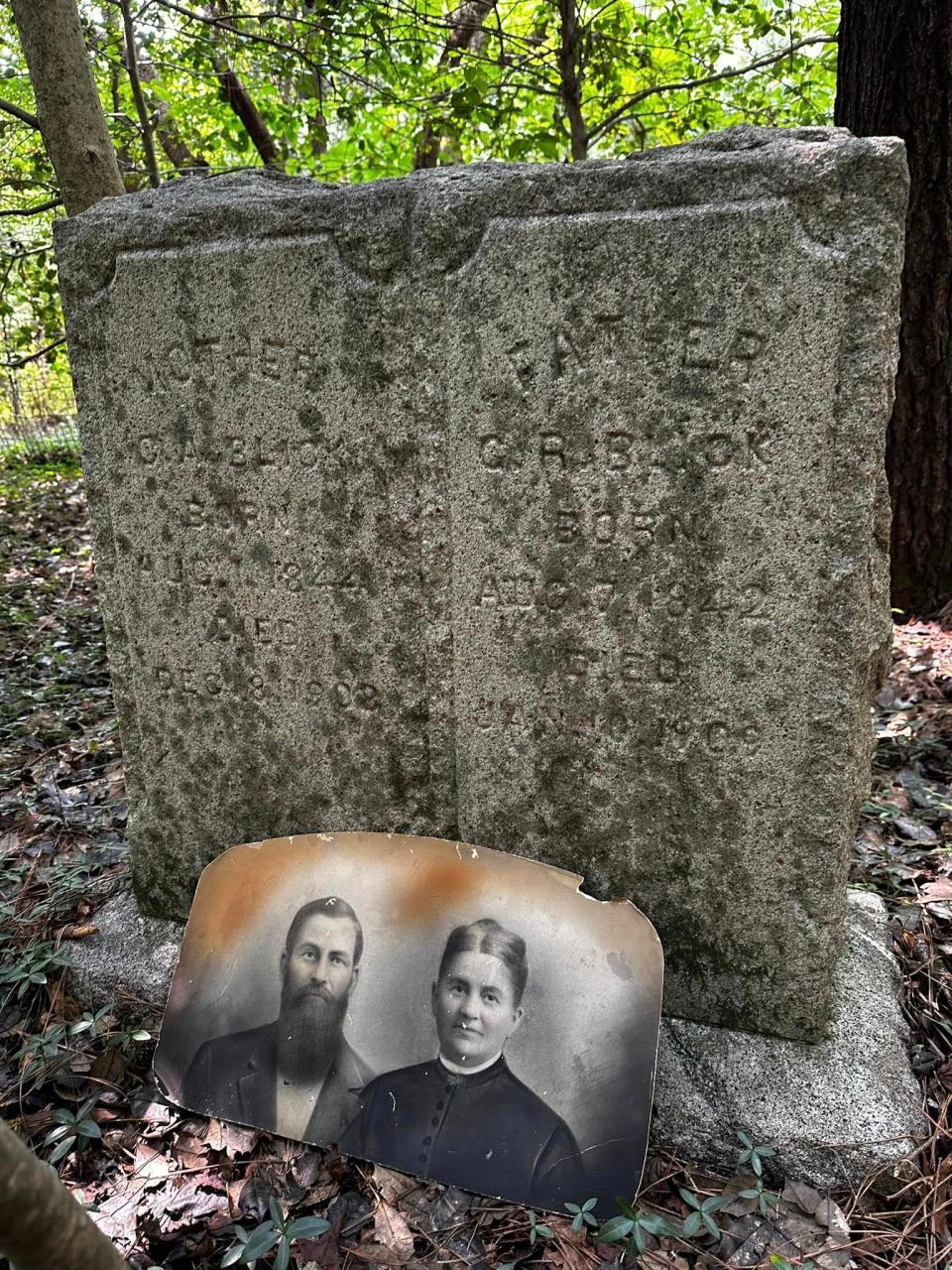
Lawrenceville: Blick Cemetery
Last summer, Richie, who grew up in Emporia, made it his mission to find the cemetery for his dad. He wanted him to be able to visit the graveyard where his grandfather and prior generations are buried. He and his father drove around looking for it but could only find a wooded property for sale. Being a licensed realtor, Richie decided to research it. He came across a photograph which had a large old house on it and knew immediately it was his ancestral home. He could not believe it still existed.
"I felt that intense pull, that intuition, and the hair stood up on my arms. Years before, I had seen a photograph of the home with my ancestors sitting on the front porch. An odd spacing in the upper windows caught my eye back then," Richie of Berryville said. "I didn't tell my father, but with the agent's permission, I went back the next day to find the cemetery."
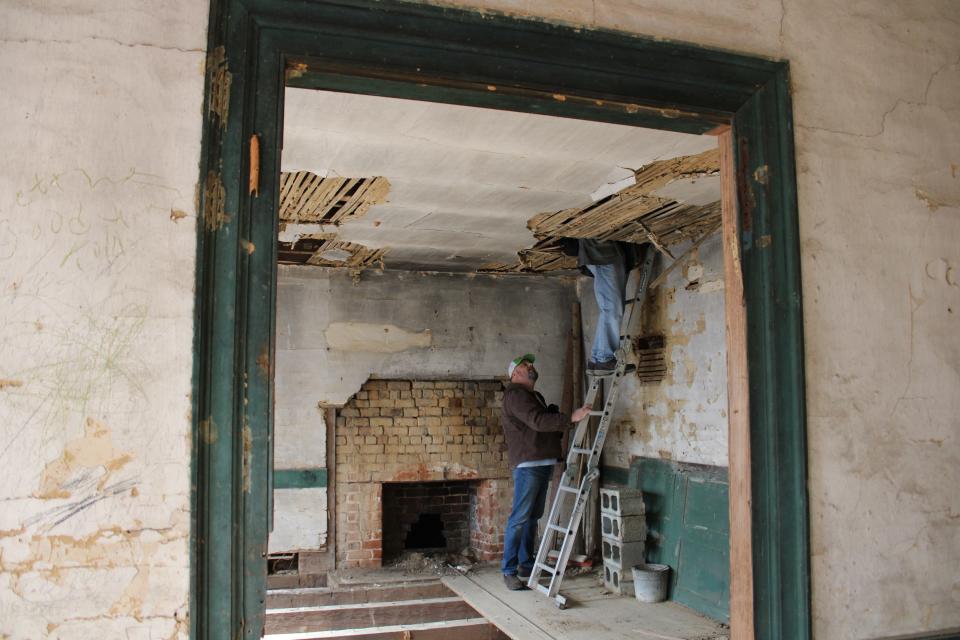
Richie did not have any luck locating the cemetery, but he indeed toured the abandoned home. He found it in shocking disrepair but thought its bones were impressive and in good condition. He said, "I felt that I belonged and could sense my ancestors." Immediately, he went to the courthouse and verified via deeds and wills that the property was without a doubt the Blick Plantation. The 10-acre property, a tiny part of what is believed to have been a 1,000-acre plantation, was indeed their family's home.
"After I told my parents about the discovery, dad and I returned the next day. After 70 years, he stood once again in his descendants' home. Since he has trouble walking, I went exploring for the cemetery while he kept guard. Still no luck," Richie said.
The Blick family has regained ownership of the homestead at 686 Wilson Creek Lane in Lawrenceville after 100-plus years. Even though the cemetery had not yet been found, Richie, still feeling an intense pull, negotiated a contract and purchased the historic homestead for $45,000. The Blicks knew they would eventually track it down.
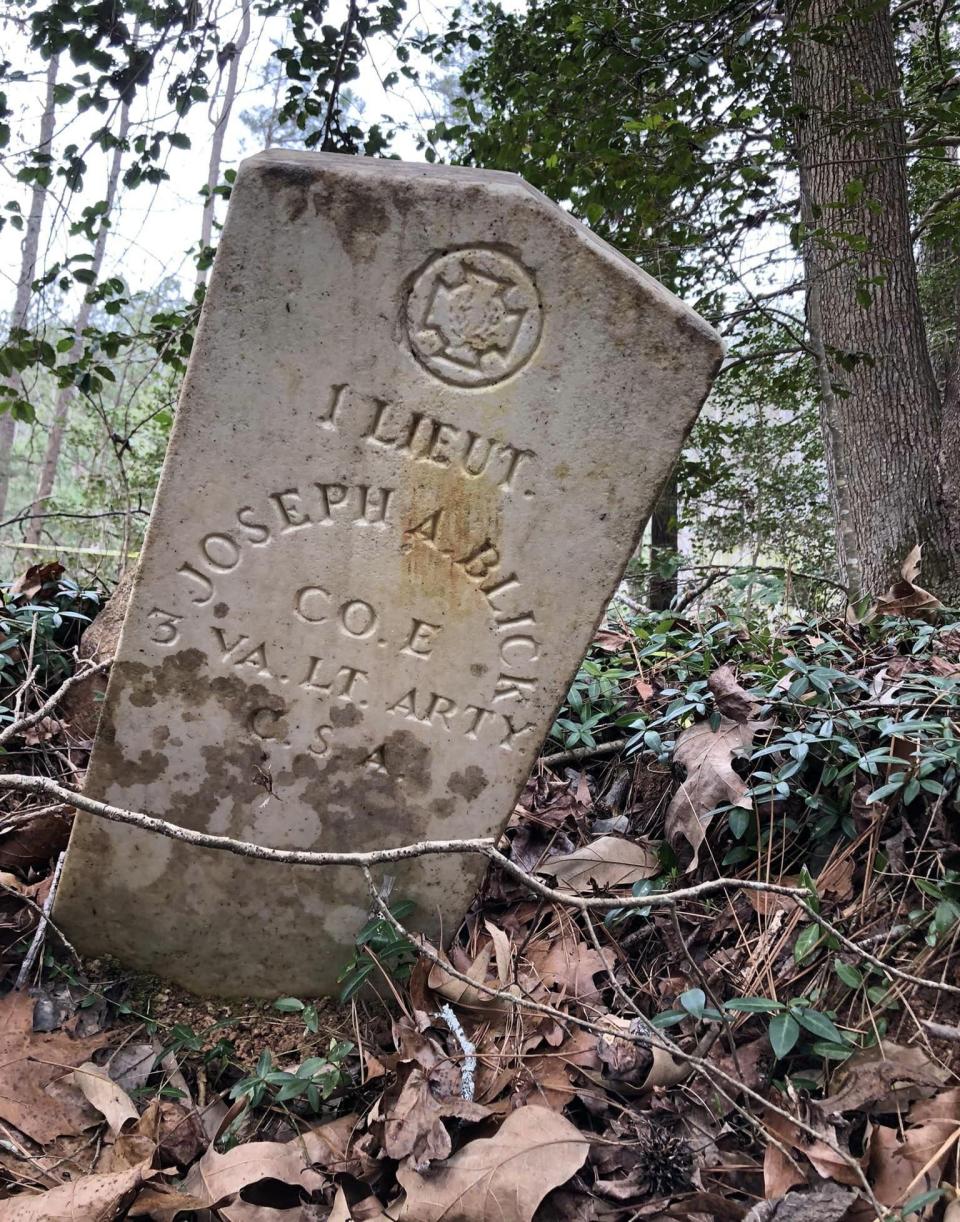
"Looking at grave resources online, I discovered photographs of our relatives' headstones taken over a decade ago by a former classmate," Richie said. "I reached out, and the individual sent me an approximate location of the cemetery."
The Blicks took advantage of a Virginia law which grants eternal cemetery access and maintenance rights as long as reasonable notice is provided to the owner of record or occupant of the property or both. After four visits, the ancestral family cemetery, lost but not forgotten, was located approximately 125 paces behind the home. It was densely covered with periwinkle groundcover which was once commonly planted in cemeteries in parts of southern United States, according to Michael Clem, an archaeologist with the Department of Historic Resources in Richmond.
"Thanks to my children's youthful eyesight, we finally found it. I was 10 feet from it on multiple occasions, but never spotted it. The cemetery was elusive, with only a few headstones above ground and big trees and everything around it," Richie said.
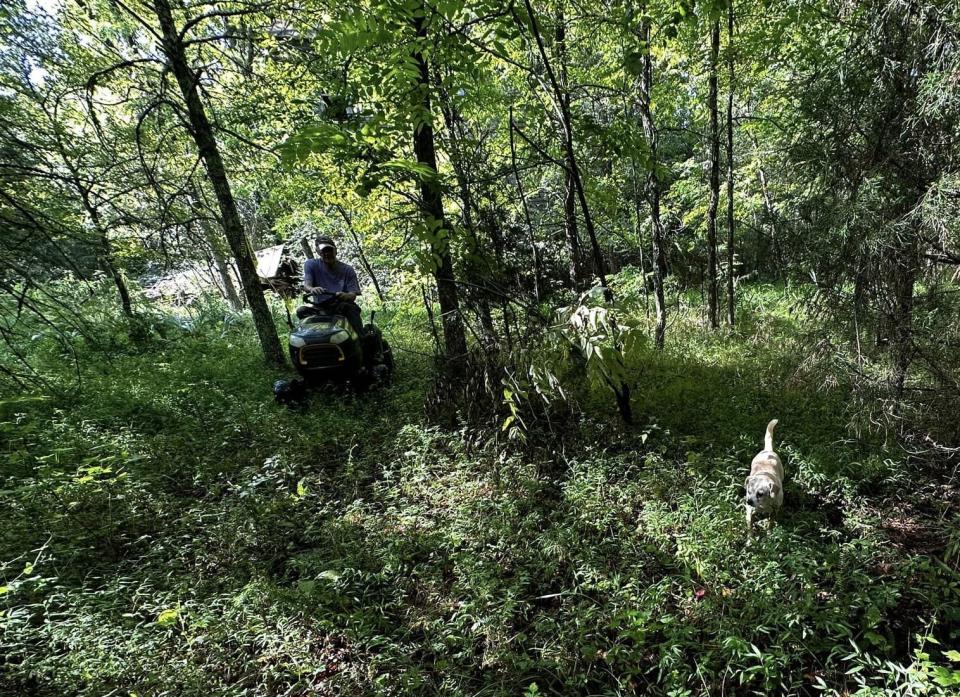
Richie’s next step was to get his mobility-challenged father to the cemetery he had been yearning over for decades.
"With the landowner's permission, I cleared a path so dad could visit. I got creative and removed the deck from his beloved riding lawnmower and off he went. It didn't make it the entire way, so he walked the last part," Richie said. "He finally got to see his grandfather's, great grandparents' and great, great grandparents' graves for the first time in his life."
Preservationist Logan Parham with Preservation Virginia visited the Blick Plantation in January. He estimated there to be 100-300 graves in the one-quarter-acre area. He pointed out that most of the graves are unmarked or marked by big rocks or small boulders. The depressions on the graves are very clear. A wire fence bordered the section where the Blick family's ancestors were laid to rest. According to a neighbor, the grave depressions are very noticeable after it snows. Parham would like to determine how the enslaved cemetery fits into the landscape and felt strongly that the entire area needs to be fenced off.
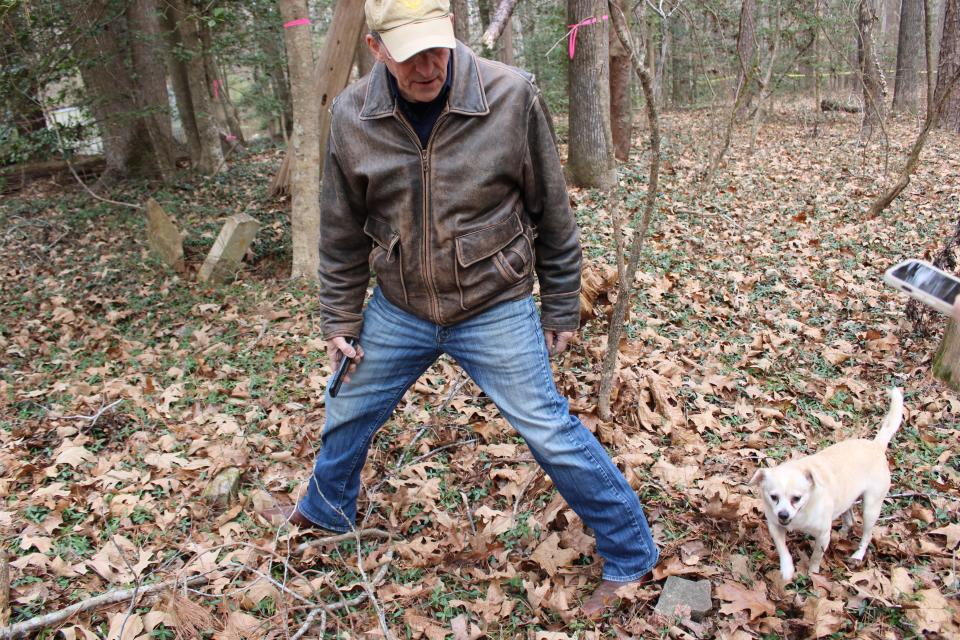
Virginia: Rare, unaltered, 1800s structure
Richie established the Historic Blick Plantation nonprofit organization. He immediately went to work and nominated the 1800s home to be added to the Virginia Landmarks Register as well as the National Register of Historic Places. Joanna McKnight, an architectural historian with the Department of Historic Resources in Richmond, confirmed the home qualifies to be placed on both registers.
"Our nonprofit will focus on historical research, education, culture, ancestry, agriculture and conservation practices," Richie said. "We want the Blick Plantation to benefit the community, region and state and would love to collaborate with other nonprofits and volunteers to help preserve this rare gem and explore its history."
Richie hopes Preservation Virginia will add both the home and the cemetery to its annual "Most Endangered Sites" list. The nonprofit brings attention to properties at risk and encourages individuals and organizations to advocate for the protection and preservation of Virginia’s historic places. Before Richie could submit the cemetery nomination, he had to seek his neighbor’s permission since part of the graveyard may expand beyond the Blicks property line.
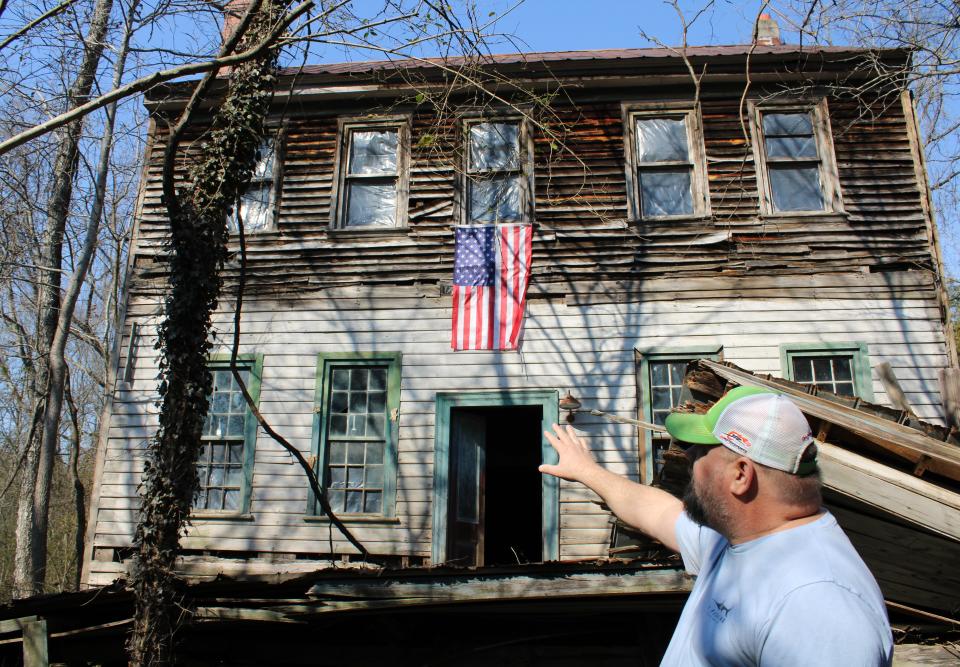
Brunswick County: Historic Blick Plantation
The inside of the historic colonial-style home is very well preserved, especially considering its decrepit appearance from the outside. It had been abandoned well over 50 years. The Blicks ancestors owned and occupied it 250 years ago. Courthouse records indicate the tobacco and crop plantation had its own mill seat during the 18th and 19th centuries up to the mid-20th century which helps explain the robust construction and finer trim details.
"The family settled in the area in the late 1600s. After Brunswick County was formed from Prince George County, a plantation was estimated to be established in 1730 and then divided over several generations," Richie said. "This home was in the family until it was auctioned in 1919 after my great-great-grandfather's death, per his will. Then, it was lost track of. Counting my four children, nine generations of Blicks have ties to the home and possibly more on the land itself."
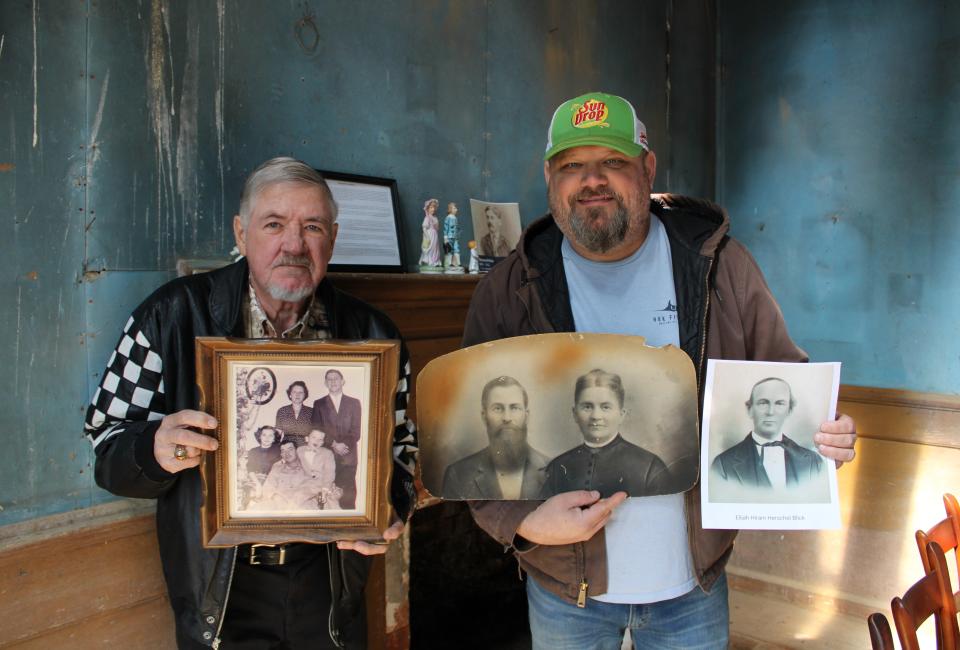
Richie, a 1994 Richard Bland College of William & Mary graduate, traced his roots to what appears to be the same land back to his fifth great-grandfather who fought in the Revolutionary War along with his son. They are both likely buried in the family cemetery.
The Blick Plantation is unique because it is an unmolested and mostly original survivor home without any living quarters additions and very few modernizations. No kitchens or bathrooms were ever added, and there is no indoor plumbing. However, it has a bullet-fuse circuit box, pull-string ceiling lights and one two-prong electric wall outlet. In the mid-20th century, a telephone was connected to the house.
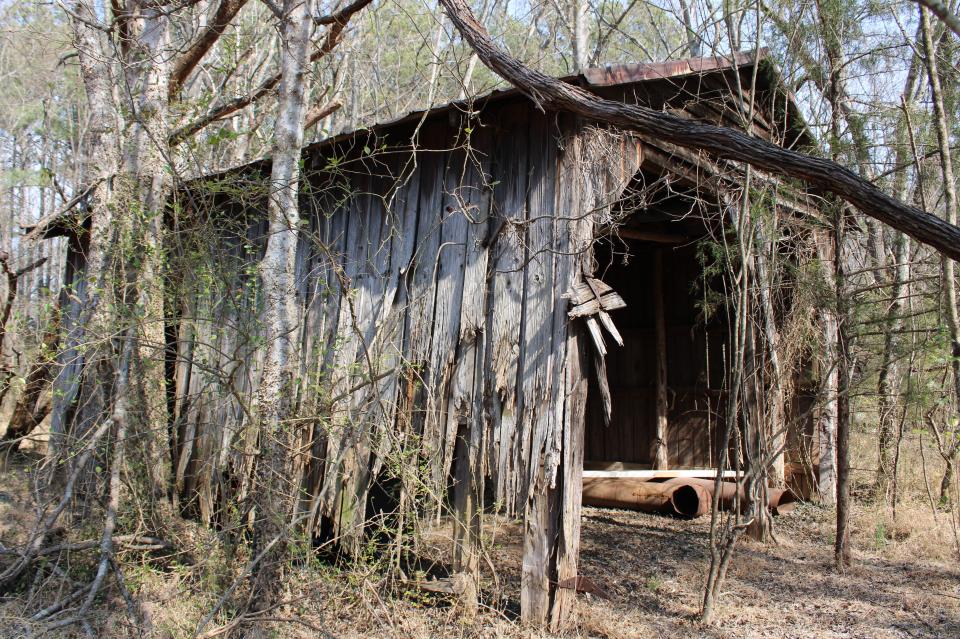
The outbuildings, secondary resources or major landscape features include a two-bay carriage house approximately 100 feet from the house, a 20th century concrete well, a hand-dug, stone-lined well (dry), probable corn crib, shed or smaller wooden building [collapsed], several modern mid-20th trash pits, and located outside the side entrance, a possible log and stone summer kitchen [collapsed].
"A family member said the log and stone structure was last used in the late 19th century/early 20th century as a doctor’s medical office for Dr. Joseph A. Blick, a hospital steward for the Confederacy. He died in Petersburg where he had moved to and had a medical practice. He is buried in the Blick Cemetery. This was his birth home, his grandfather’s home and possibly his great grandfather’s home," Blick shared.
I toured the home on February 22. It is extraordinary. I fell in love with the denim blue, honey, terra cotta paint hues on the walls as well as the very rare chinoiserie railing at the top of a unique, winding staircase which helps date the home [1750-1780]. The heart of pine flooring and mantle were missing from one of the upstairs rooms. According to Richie, rumors reached him as to where the Blick home items are currently located.
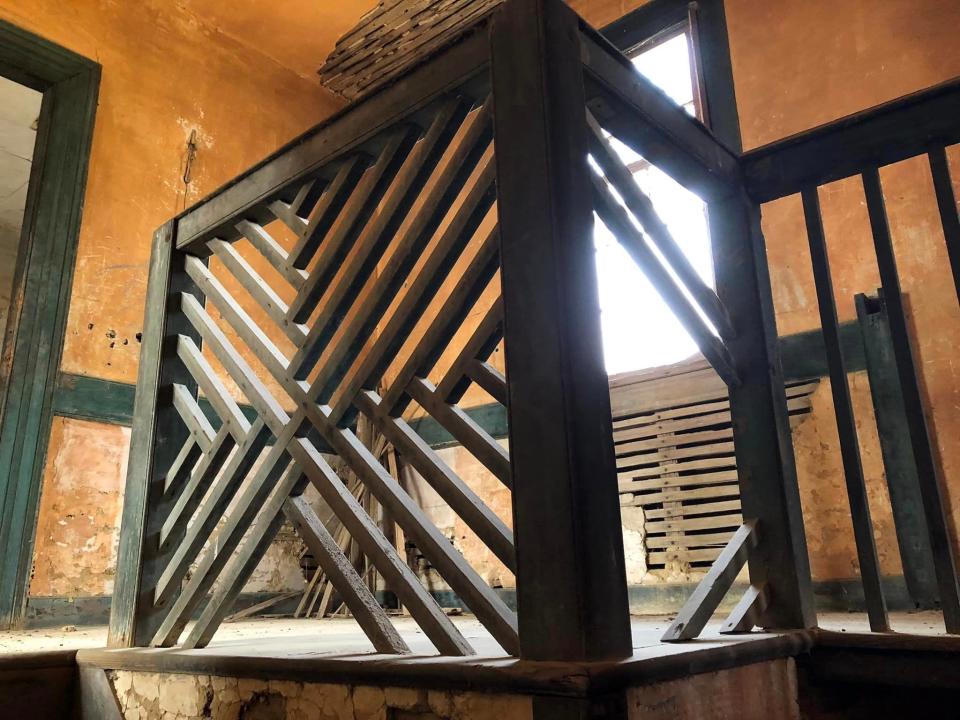
"It's amazing to see such original paint finish on the trim and all of the surviving trim and wainscoting. The complete structural system in the roof is highly intact, never been touched. I don't even see any water stains. So, I don't think there's a leak up there. This is an amazing house and really a treasure for Brunswick County and Southside Virginia," Marc Wagner, an architectural historian with the Department of Historic Resources in Richmond, said.
"This structure, while endangered, has an incredible degree of architectural integrity. So many early features survived in this building in very good shape. Having that material intact is always very important for understanding not just architectural history but the history and cultural values of the people who built the house, people who were enslaved at this place, the people who used this house as well as understanding the local history of the Region," Eric Litchford, a preservation specialist/project manager with Preservation Virginia, said.
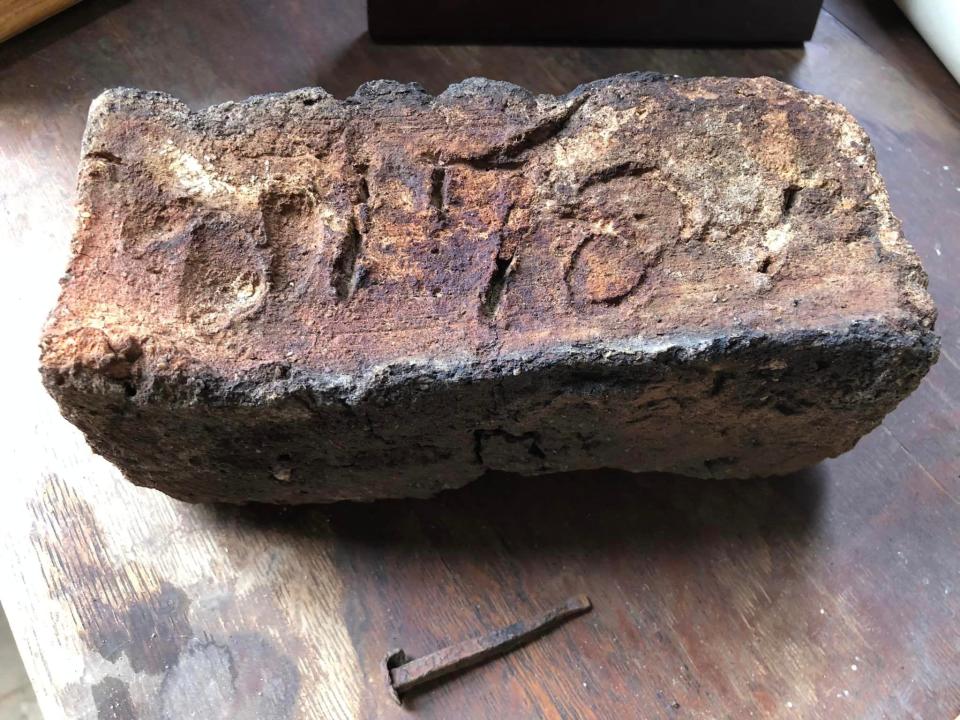
Virginia plantation: Descendants eager to learn from not so rosy past
As a working plantation, enslaved people were an important part of the fabric of the Historic Blick Plantation. I asked Richie to share his thoughts about his ancestors who owned slaves. He provided the following statement:
"Since we just reacquired the property in November after 100 years of absence, we have just started researching it. I don’t know about the specific dynamics of historical life here, but I look forward to learning more and integrating that history into the lessons of today. I have already learned that enslaved people had a hierarchy, and enslaved persons who worked closely with the family were buried with the family upon their deaths.
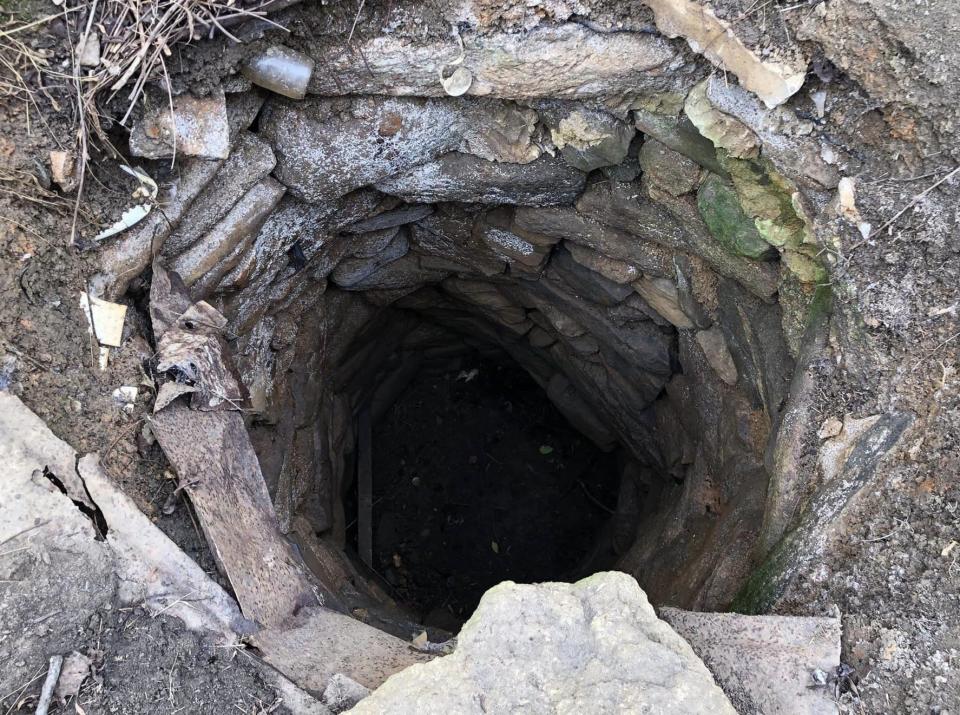
"Also, we are near Smoky Ordinary and there is a historical marker there that states this was the first location in Virginia where Black people voted. Perhaps this place played an important role there, too. Part of the Historic Blick Plantation nonprofit's goal is to collaborate with passionate people and have volunteer-led research. Then, teach others about all the aspects of life here over its 250 years of existence, not just the rosy part. It's an exciting journey!"
The Historic Blick Plantation president and director, Richie, created and launched the nonprofit's website this week. Visit historicblickplantation.org to learn more about the extremely rare Virginia historic gem. Follow on Facebook @Historic Blick Plantation Rescue & Rebirth, Instagram @blickplantation, TikTok @blickplantation and YouTube @BlickPlantation. The homestead is described in detail on the Preliminary Information Form Richie prepared for the Department of Historic Resources. It contains a wealth of information about the home, property, cemeteries, family genealogy and more. To view it, search for Blick Plantation at dhr.virginia.gov.
Standing in the Blick Planation after he took his first tour, Clem told Richie, "I really appreciate you being the steward of this property."
"It's an honor and a lot of wait," Richie said. "When I found this house, I realized that it was something very special. I felt it in my bones. And you get doing further and further research, talk to professionals and learn so much. Then, it starts to click."
'Organization prepares girls for life' Girl Scouts organization turns 112: Treska Wilson-Smith sells cookies for 65 years
'Bittersweet to say goodbye' Petersburg: End of an era, family closes iconic barbecue restaurant after 90 years
Kristi K. Higgins aka The Social Butterfly, an award-winning columnist, is the trending topics and food Q&A reporter at The Progress-Index voted the 2022 Tri-Cities Best of the Best Social Media Personality. Have a news tip on local trends or businesses? Contact Kristi (she, her) at [email protected], follow @KHiggins_PI on X and @socialbutterflykristi on Instagram.
Your support is vital to local journalism. Please subscribe.
This article originally appeared on The Progress-Index: Virginia family discovers ancestors' 18th century home, a rare gem
